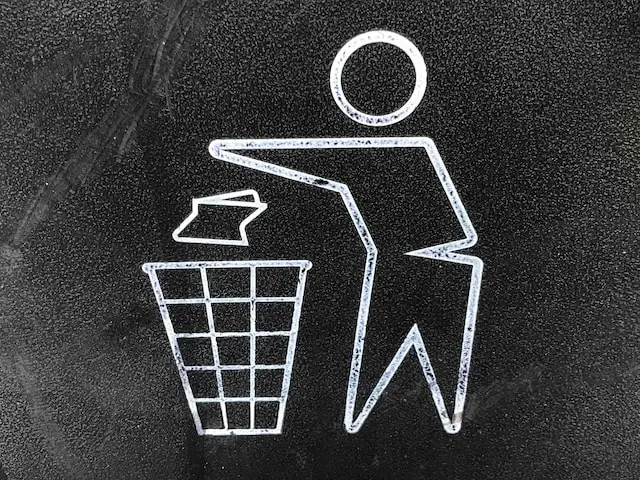The accumulation of unused goods is an inevitable consequence of our pursuit of the newest and greatest in a world driven by consumerism. Over time, our living spaces become cluttered, leaving us with the daunting task of decluttering and disposing of possessions we no longer need.
Fortunately, there are various methods available to tackle this challenge efficiently. From environmentally conscious options to those that put a few extra dollars in your pocket, this guide will explore the top methods for disposing of unused items, helping you streamline your space and simplify your life.
Donations: A Gift That Keeps on Giving
Donations stand as a profoundly altruistic and impactful method of disposing of unused items, creating a virtuous cycle of generosity. When you choose to donate, you extend the life of your possessions by giving them a chance to serve a new purpose in the hands of others. The ripple effect of this act reaches beyond your immediate surroundings, contributing to the well-being of individuals and families in need.
Local charities and thrift stores become conduits for redistributing your items, transforming them into affordable essentials for those facing financial constraints. This process not only alleviates clutter in your own space but also fosters a sense of community and shared responsibility.
The joy of giving becomes twofold – not only do you experience the satisfaction of decluttering, but you also contribute to the creation of a more equitable and compassionate society. Moreover, the environmental impact of reusing items through donation is substantial, as it reduces the demand for new production and minimizes the strain on precious resources. In essence, donations embody the spirit of sustainable living, transforming a seemingly mundane act of decluttering into a gift that keeps on giving.
Sell it: Turning Clutter Into Cash
For those looking to recoup some of the expenses associated with their unused items, selling can be an attractive option. Online platforms such as eBay, Facebook Marketplace, and Craigslist provide a vast marketplace for second-hand goods. This method not only helps you declutter but also puts a few extra dollars in your pocket. Additionally, consider hosting a garage sale for a more immediate and localized approach to selling your unused items.
Recycling: Earth-Friendly Disposal
Recycling stands as a cornerstone of responsible and earth-friendly disposal practices, offering a tangible solution to the ever-growing problem of waste accumulation. The beauty of recycling lies in its ability to transform discarded materials into valuable resources, thereby reducing the strain on our planet’s finite raw materials.
From the familiar trio of paper, glass, and plastic to the complex realm of electronic waste, recycling programs cover a wide spectrum of materials, each with its own set of guidelines and processes. Engaging in recycling initiatives not only diverts items from landfills but also lessens the need for energy-intensive production methods that contribute to environmental degradation.
By participating in local recycling programs and adhering to proper sorting practices, individuals play a vital role in closing the loop on the lifecycle of materials, fostering a more sustainable and circular approach to resource consumption. Embracing recycling as a disposal method aligns with a broader commitment to environmental stewardship, ensuring that our collective efforts contribute to a healthier planet for future generations.
So, whether it’s separating recyclables at home or advocating for improved recycling infrastructure in communities, each small action adds up to a significant positive impact on the environment.
Junk Yards: A Second Life for Old Vehicles
When it comes to larger items like cars that are beyond repair, junk yards play a crucial role in sustainable disposal. These facilities salvage useful parts from vehicles, recycle materials, and minimize waste. If you’re dealing with an old car taking up space, consider exploring cash for junk cars in Los Angeles services. These specialized programs not only offer financial compensation but also contribute to environmentally conscious disposal practices.
Upcycling: Creativity Unleashed
In a world saturated with mass-produced goods and fleeting trends, upcycling emerges as a beacon of creativity and sustainability. It is more than a mere trend; it’s a lifestyle that encourages us to view our unused items not as clutter but as untapped potential. Upcycling is an art form that invites us to reimagine the purpose of everyday objects, transforming the mundane into the extraordinary.
The beauty of upcycling lies in its versatility—old furniture can find new life with a fresh coat of paint, discarded pallets can become bespoke shelves, and worn-out denim can be repurposed into fashionable accessories. Beyond the environmental benefits of diverting items from landfills, upcycling allows us to showcase our ingenuity and unique style. It fosters a sense of accomplishment as we witness the transformation of the overlooked and neglected into something beautiful and functional.
Whether you’re a seasoned DIY enthusiast or a novice eager to explore your creative side, upcycling is a canvas waiting for your personal touch. It’s not just about reducing waste; it’s about infusing a sense of purpose and meaning into the objects that surround us, turning the act of disposal into a celebration of innovation and self-expression.
E-Waste Disposal: Safeguarding the Environment

E-waste disposal stands as a critical frontier in safeguarding the environment against the escalating tide of technological advancements. As our lives become increasingly intertwined with electronic devices, responsibly handling electronic waste has become paramount. The disposal of old smartphones, laptops, and other electronic gadgets requires a nuanced approach to prevent environmental degradation. Many localities now champion specific e-waste disposal programs, ensuring that these items are either recycled or processed in an environmentally conscious manner. By partaking in designated collection points or engaging in manufacturer-sponsored take-back initiatives, individuals contribute to the circular economy, reducing the environmental footprint of discarded electronics. It’s not merely about discarding outdated gadgets; it’s about acknowledging our shared responsibility to mitigate the adverse effects of e-waste on our planet.
Navigating the realm of disposing of unused items involves a thoughtful consideration of the environmental impact, potential financial return, and the desire to give back to the community. By exploring the diverse methods outlined in this guide, you can tailor your approach to suit your values and priorities. Remember, the journey toward a clutter-free space is a personal one, and each method offers its unique benefits. So, whether you’re seeking cash for your unused car in Los Angeles or aiming to breathe new life into old items through upcycling, these methods ensure that your decluttering journey is both meaningful and sustainable.
 khamush.com Lifestyle | Motivation | Poems
khamush.com Lifestyle | Motivation | Poems



